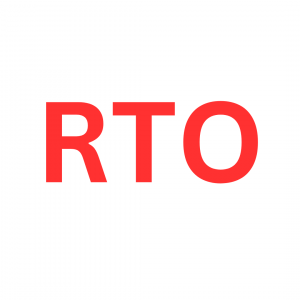No Claim Bonus (NCB) in Insurance
No Claim Bonus (NCB) is a significant concept in the General Insurance sector, applicable to Vehicle Insurance (bike insurance and car insurance), Travel Insurance, and Health Insurance. It plays a pivotal role in encouraging policyholders to maintain a claims-free record over time.
Key points regarding No Claim Bonus:
- Vehicle Insurance (Car and Bike Insurance):
- In the context of vehicle insurance, NCB is earned by policyholders who do not make any claims during the policy period.
- The NCB discount is applied during the renewal of the policy and acts as an incentive for safe and responsible driving.
- The discount typically increases with each consecutive claims-free year, providing policyholders with a tangible benefit for maintaining a clean claims record.
- Health Insurance:
- In health insurance, NCB is applicable when the policyholder does not file any claims during the policy term.
- The NCB discount is applied when renewing the health insurance policy.
- The discount encourages individuals to focus on preventive healthcare and only make claims when necessary.
- Travel Insurance:
- While travel insurance policies are often short-term and trip-specific, NCB may not be as prominent in this category.
- Annual travel insurance policies may incorporate NCB benefits for those who do not make claims during the coverage period.
Benefits of No Claim Bonus (NCB) in Car Insurance:
- Discount: One of the primary benefits of NCB is the discount it provides on policy renewal, resulting in a lower premium compared to what would be incurred if a claim had been made.
- High Savings: NCB is incremental and increases for every consecutive claims-free year, leading to significant savings on insurance premiums over time.
- Transferable: NCB is associated with the car owner rather than the specific vehicle, allowing the policyholder to carry forward the NCB when selling an old insured car or switching insurance providers.
How NCB Works:
NCB operates as a reward and motivation system, encouraging responsible driving habits and discouraging unnecessary claims, fostering a culture of risk prevention.
Why NCB is Important in Car Insurance:
NCB holds significant importance in car insurance as it directly impacts the cost of coverage, providing a crucial feature for car owners looking to manage insurance costs effectively.
No Claim Bonus Calculator:
NCB calculation in car insurance is based on the consecutive claim-free years. The discount percentage increases with each consecutive claim-free year, offering a cumulative benefit for policyholders who prioritize safe driving practices.
| Claim-free renewals (years) | Discount on Premium |
|---|---|
| On first claim-free renewal | 20% |
| On second claim-free renewal | 25% |
| On third claim-free renewal | 35% |
| On fourth claim-free renewal | 45% |
| On fifth claim-free renewal | 50% |
Vehicles over and above 5 years of age will retain a 50% discount on the premium if the owner does not claim.
No Claim Bonus (NCB) Discount on Your Premium Calculator
Let’s illustrate the calculation of No Claim Bonus (NCB) discount on insurance premiums with an example involving Mr. A and Mr. B, both of whom purchased expensive vehicles of the same make and model.
In the first year, both Mr. A and Mr. B paid Rs. 22,000 to insure their vehicles. For the second year, the premium is expected to reduce to Rs. 20,000 due to the natural depreciation in the value of the vehicles.
During the policy period of the first year, Mr. A did not raise any claims, maintaining a clean and claim-free record. As a result, when renewing his policy for the second year, Mr. A received a 20% discount on the premium payable. This discount is a direct outcome of his No Claim Bonus, representing the reward for his responsible driving behavior.
On the other hand, Mr. B was involved in a car accident during the first year and had to raise a claim for damages. Unfortunately, due to the claim, Mr. B did not accrue any No Claim Bonus. As a result, when renewing his policy for the second year, Mr. B did not receive the NCB discount, and his premium remained at Rs. 20,000.
This example underscores the tangible benefits of maintaining a claims-free history, as Mr. A was able to enjoy a reduced premium in the second year due to his earned No Claim Bonus, while Mr. B did not receive the discount due to the claim filed during the first year. It emphasizes the financial advantages of safe driving practices and the direct impact of NCB on insurance costs.
Calculation
| Mr. A | Mr. B | |
|---|---|---|
| Premium for the first year | Rs. 22,000 | Rs. 22,000 |
| Premium for the second year (first claim-free renewal) | Rs. 20,000 (NCB 20%) | Rs. 20,000 (NCB 0%) |
| Premium After NCB calculation | Rs. 16,000 | Rs. 20,000 |
Note: The above example is just for explanatory purposes. NCB is calculated on the Own Damage component of the payable premium and not the overall premium.
When is No Claim Bonus Applicable?
No Claim Bonus (NCB) is applicable specifically during the time of policy renewal and exclusively on the ‘Own Damage Cover’ component of a car insurance policy.
The NCB is a feature associated with Comprehensive car insurance policies, providing financial protection against damage to the insured car. Therefore, NCB is applicable only to Comprehensive policies and not to Third-party Liability policies.
For those opting for a Comprehensive Car Insurance policy, various add-ons can be selected to enhance coverage. The NCB Protection Cover is one such add-on designed to maintain the active status of the No Claim Bonus even if a claim is made during the policy period. It’s important to adhere to the terms and conditions stipulated by the insurance provider regarding the number of claims permissible under this cover.
How to Transfer NCB to New Car Insurance?
- Purchase a New Car or Switch Insurers:
- Whether you buy a new car or decide to switch to another insurance provider, you can transfer your existing NCB to the new policy.
- Obtain No Claim Bonus Transfer Certificate:
- Request a No Claim Bonus Transfer certificate from your current or previous insurance company. This certificate is crucial for transferring the NCB to the new policy.
- Ensure Timely Renewal:
- Ensure that there is no gap of more than 90 days between the expiry date of your existing insurance policy and the renewal of the new policy. Timely renewal is essential for a smooth NCB transfer.
- Provide Necessary Documentation:
- When purchasing the new insurance policy, provide the No Claim Bonus Transfer certificate and any other necessary documentation to the new insurance provider. This ensures that the NCB benefits are correctly transferred to the new policy.
- NCB Transfer Rules:
- Understand that NCB is associated with the car owner and not the vehicle. Therefore, the transfer of NCB is permissible even if you sell your existing car and purchase a new one. However, the benefit cannot be transferred to a new owner in case of a vehicle sale.
- Claiming NCB on Renewal:
- During the renewal of your new car insurance policy, you can claim the NCB transferred from the previous policy. The transferred NCB will result in a discount on the premium for the new policy.
It’s important to note that NCB transfer rules stipulate that the benefit cannot be transferred to a new owner when selling a vehicle. The NCB remains associated with the car owner and can be transferred to a new policy upon purchasing another vehicle or switching insurers. Following these steps ensures a seamless transfer of NCB and allows policyholders to continue enjoying the rewards for maintaining a claims-free record.
Frequently Asked Questions on No Claim Bonus Protection Cover
- What is the purpose of No Claim Bonus (NCB) Protection Cover in car insurance?The NCB Protection Cover is an add-on feature in car insurance designed to maintain the active status of the No Claim Bonus even if a claim is made during the policy period. This add-on is particularly beneficial for policyholders with comprehensive insurance who want to safeguard their accumulated NCB. It helps policyholders avoid losing their NCB discount in case they need to make a claim, providing financial protection against potential damage to the insured vehicle.
- How much does the NCB Protection Cover typically cost?The cost of the NCB Protection Cover usually falls within the range of 5-10% of the policy premium. The actual cost may vary depending on the insurance provider and the specific terms and conditions associated with the add-on. Policyholders should inquire about the cost of the NCB Protection Cover when considering this add-on for their car insurance policy.
- Is NCB applicable to Third-party Car Insurance?No, NCB is not applicable to Third-party Car Insurance, which is mandatory as per Indian law. NCB is a feature associated with Comprehensive car insurance policies that provide financial protection against damage to the insured car. Therefore, NCB is applicable only to Comprehensive policies and not to Third-party Liability policies.
- Can No Claim Bonus be transferred to a new car insurance policy?Yes, NCB can be transferred to a new car insurance policy. The transfer process involves purchasing a new car or switching insurers, obtaining a No Claim Bonus Transfer certificate from the current or previous insurance company, ensuring timely renewal with no gap of more than 90 days, providing necessary documentation to the new insurance provider, and claiming the transferred NCB during the renewal of the new policy. It’s important to note that NCB is associated with the car owner and can be transferred to a new policy upon purchasing another vehicle or switching insurers.
- Can No Claim Bonus be transferred to a new owner when selling a vehicle?No, the NCB cannot be transferred to a new owner when selling a vehicle. NCB is associated with the car owner and not the vehicle itself. However, the NCB can be transferred to a new policy if the owner purchases another vehicle or switches insurers. The new owner of the vehicle will not inherit the NCB benefits, as it remains with the original policyholder.











